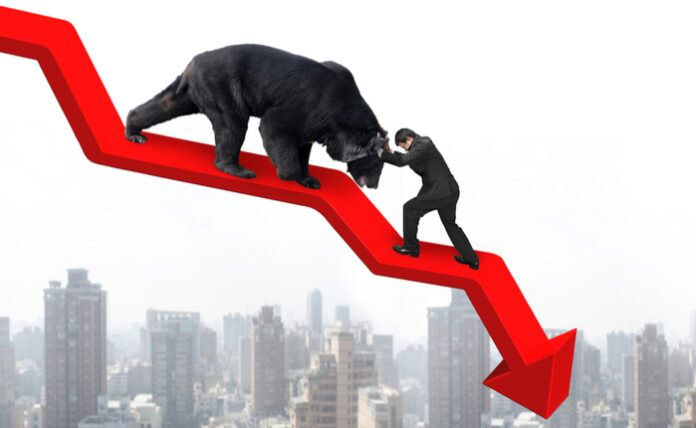U.S. futures point to a negative start
Wall Street looked set to start the week in the red, amid growing concerns that a second wave of coronavirus cases is under way in the U.S. and Asia.
According to a South China Morning Post report, China has locked down about 10 residential blocks in its capital Beijing after 36 new cases of the virus were reported at a food market.
On Sunday, Japan also recorded its biggest number of new cases in around a month in Tokyo, with the majority of cases traced back to bars and nightclubs that recently reopened.
Cases and hospitalizations are also on the rise in many states across the U.S., including Texas, Florida, North Carolina, Utah, and Arkansas.
By 5:30 a.m. ET, the blue-chip Dow futures plunged 605.5 points, 2.38% to 24,792.5. The S&P 500 futures were down 59.37 points, or 1.96% to 2,964.38 while the Nasdaq 100 futures dropped 157.13 points, or 1.63% to 9,475.12.
Crude slumps on virus fears
Crude futures also tumbled on Monday, hurt by reports of new COVID-19 infections around the world. Some traders worry that a spike in new cases could weigh on the recovery of fuel demand.
“Any new outbreak will be looked at very, very cautiously by investors. The market is putting into perspective that the COVID-19 issue has not been resolved yet. It’s a reality check,” Reuters quoted Argonaut analyst James McGlew as saying.
By 5:20 a.m. ET, U.S. West Texas Intermediate crude futures were at $35.49 a barrel, down 77 cents, or 2.12%. International Brent crude futures were down 46 cents, or 1.19% to $38.27 a barrel.
Washington and California investigating Amazon’s business practices
Meanwhile, the New York Times is reporting that Washington state has joined California in examining whether Amazon (NASDAQ:AMZN) makes it harder for third-party sellers to list their products on other websites.
According to the report, California state investigators are reviewing the retail giant’s practices on selling its own products in competition with third-party dealers.
Sources told the NYT that Washington state is also looking into whether the company makes it harder for vendors to detail their products in other places on the web. However, the sources said the inquiries did not appear to be in advanced stages.










